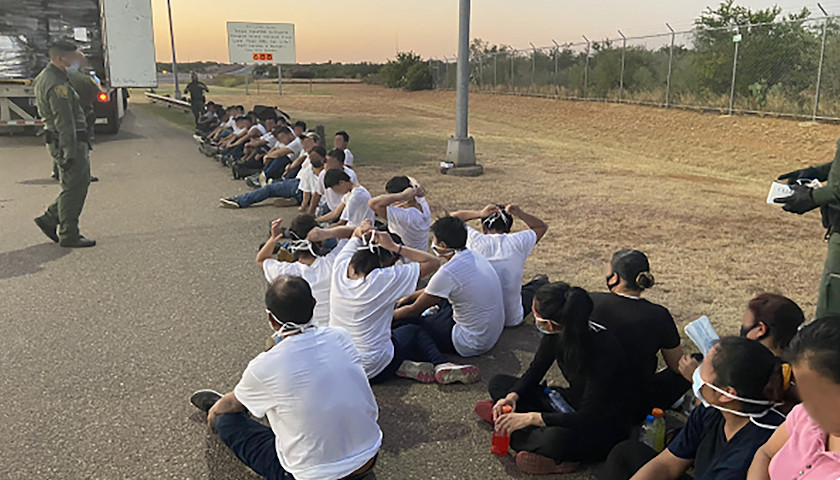A Pennsylvania House of Representatives panel on Thursday passed bills to favor apprenticeship-trained labor and pay prevailing wages in state contracting in a process Republicans blasted as illegitimate.
The House Labor and Industry Committee reported both bills to the full chamber, with all 12 Democrats supportive and all nine Republicans opposed.
Before the committee debated the bills, its minority chair, State Representative Ryan Mackenzie (R-Macungie), objected to voting so soon. He cited House Rule 45, which states that a “regular meeting” wherein votes can occur requires that 24 hours notice be given to committee members. Committee leadership, he said, sent the meeting announcement at 3:01 p.m. on Wednesday, apprising the lawmakers of a meeting taking place around noon on Thursday.
Mackenzie also opined that such short notice of a meeting violated the state’s Sunshine Act which governs open meetings. The representative moved to adjourn the meeting on those grounds but was rebuffed in a near party-line vote. State Representative Mike Jones (R-York) was the only member of his caucus to abstain from the adjournment vote entirely, protesting against voting on proceeding with a meeting he considered “illegitimate.”
One measure passed by the panel, which supporters call a “Statewide Responsible Contractor Law,” would require all firms bidding on public works projects to have a government-recognized apprenticeship program. It would further mandate payment of the prevailing wage, i.e., the average wage paid in similar occupations. Both provisions would exclude the majority of Pennsylvania construction and other trade-performing companies from government contracting.
The second bill, sponsored by State Representative David Delloso (D-Ridley Park), would apply prevailing-wage requirements to work performed on all investor-owned utilities, including water, sanitation, electrical and power services.
State Representative Joshua Siegel (D-Allentown) insisted his proposed apprenticeship law would enhance the quality of infrastructure and public facilities in the Keystone State.
“We have the opportunity in the state of Pennsylvania to be a leader in fiscally sound and economically prudent procurement policy and ensure that our construction workforce is properly prepared and skilled for the challenges of tomorrow while also being prudent investors of our taxpayer dollars,” he said.
Siegel noted the commonwealth will receive about $8.9 billion for infrastructural projects like bridges, roads, transit sites, ports, and clean-water efforts via the federal Infrastructure Investment and Jobs Act signed by President Joe Biden in November 2021. He also observed the Pennsylvania Department of Transportation’s multi-year improvement plan will oversee $23.5 billion in projects through 2026.
The representative argued that his legislation would help the state handle these responsibilities by promoting apprenticeships to ensure a sizable and well-trained workforce. He warned that over 40 percent of Pennsylvania’s construction workforce will retire by the end of the decade.
To bolster his case for cost efficiency, Siegel cited survey data indicating that 87 percent of business executives with companies offering apprenticeship programs would “strongly recommend” keeping those programs. He contended that such training reduces costs and boosts productivity.
Mackenzie argued that while government-recognized apprenticeships provide education to many skilled workers, they are not the only proven means of training either union or nonunion workers. He, therefore, insisted the Siegel legislation is exclusionary. He recalled instances where apprenticeship requirements in some jurisdictions have held up bidding processes for government projects because no able contractor qualified.
“That’s very problematic that we are excluding people who have tremendous education,” he said. “Whether they’re union or nonunion, you’re now excluding people.”
Ultimately, he and other Republicans said, thinning the array of contractors that can bid to complete public works will increase the cost to taxpayers.
Republicans said they also voted against Delloso’s prevailing-wage measure due to cost concerns. House Freedom Caucus Vice Chair David Rowe (R-McAlisterville) cited Ohio’s decision to exempt school projects from prevailing-wage mandates, leading to a statewide savings of over $500 million.
“I’m going to be a ‘no’ on this because I’m concerned about the costs that are going to be associated with it for our property taxpayers,” he said.
Rowe submitted amendments to both bills requiring contractors to submit copies of their collective bargaining agreements to the Department of General Services. The amendments, intended to inform taxpayers of where their money is going, were defeated in party-line votes.
Rowe argued the rushed manner in which the meeting was allegedly held exemplified the need for his contract-transparency amendments.
“People are tired of the opaqueness that happens in government functionality,” he said. “People don’t send us here to make the backroom deals; they’re sick of those.”
State Representatives Jill Cooper (R-Export) and Ann Flood (R-Pen Argyl) offered amendments to impede government contracts for companies found guilty of employing illegal aliens within the last three years. Representative Barbara Gleim (R-Carlisle) also proposed an amendment to remove the apprenticeship provision from the Siegel bill. Committee Democrats similarly voted down those amendments.
– – –
Bradley Vasoli is managing editor of The Pennsylvania Daily Star. Follow Brad on Twitter at @BVasoli. Email tips to [email protected].




